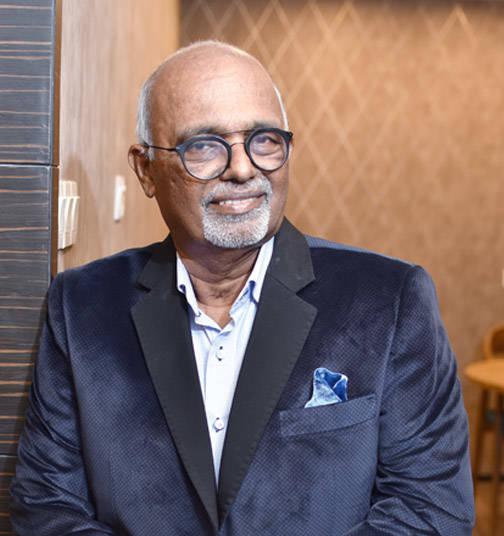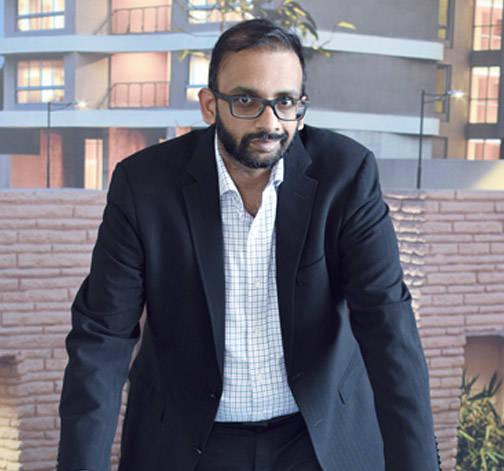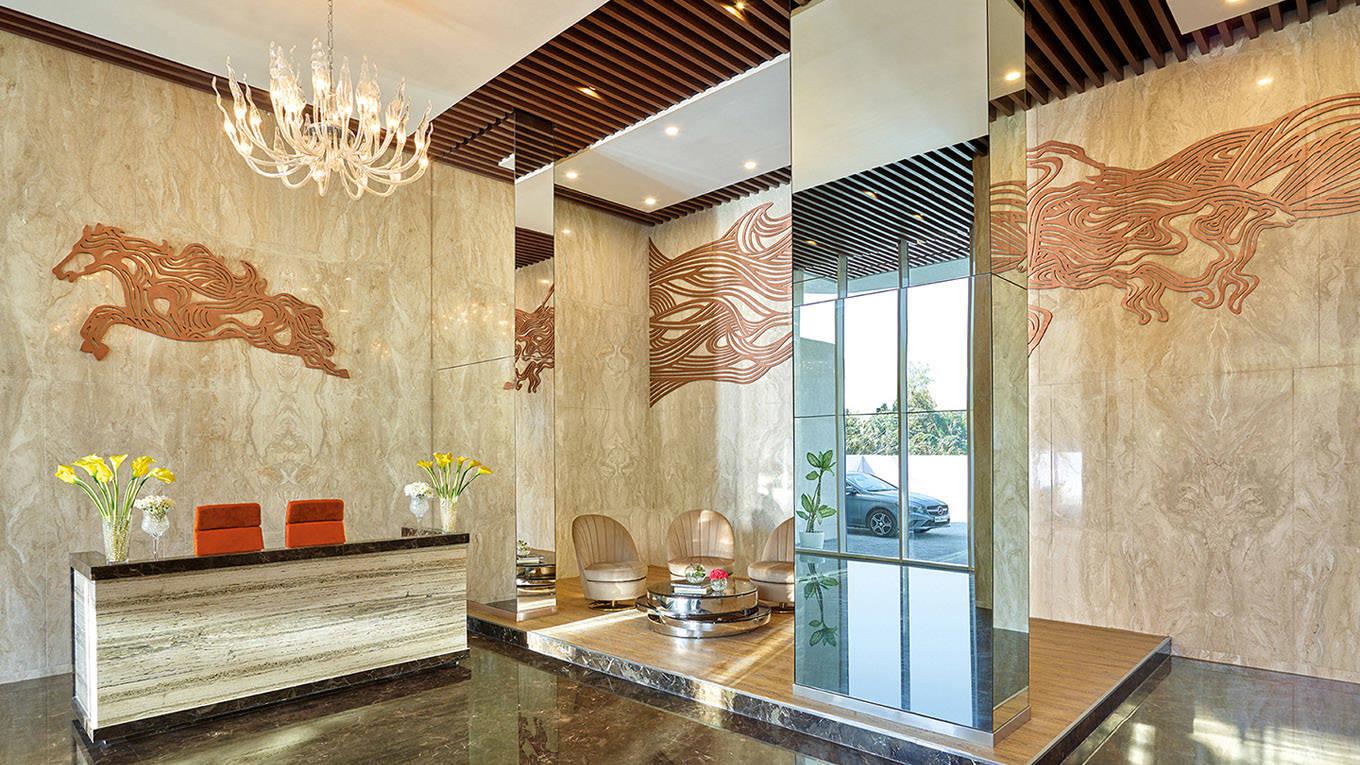-
Its catchline puts it: “We don’t just construct; we engineer success. We don’t just build the future; we perfect it.”
Vascon, which Vasudevan set up when he entered the construction business “by accident” in 1986, is now an ISO9001-2000 certified company that provides a complete range of EPC (engineering, procurement and construction) services – from concept to completion, its Website says. “Our extensive experience and proficiency enable us to understand and assess project risks, complex technologies, and location difficulties and helps us create effective solutions, while always adhering to the highest standards of quality and safety.”
Simple principle
With more than three decades of experience in conceiving, building and managing varied projects, the company is present across multiple sectors: residential, industrial, IT parks, malls and multiplexes, hospitality and community welfare centres, schools and hospitals. Its projects range from sprawling factories to premium homes, from glittering malls to towering software parks and classy elegant schools.
All this, the man at its head says, is thanks to one simple principle that guides his approach to every project: understanding and fulfilling each customer’s needs and exceeding expectations. As its catchline puts it: “We don’t just construct; we engineer success. We don’t just build the future; we perfect it.”
Staying committed to applying the art of value-based aesthetics to the science of construction through excellent engineering, Vasudevan set up a team made up mainly of engineers like himself, with highly qualified specialists from various fields of management to back them up. Well-documented systems and procedures ensure that every Vasconite follows the same process right from planning and procurement to testing and execution.
Vasudevan’s first-class B.E. (civil) degree from the College of Engineering Pune got him his first job with pharmaceuticals major Cipla, which he joined as a project executive. Five years into executing projects for his employer, he decided to do the same thing himself and launched his own construction company.
-

R. Vasudevan’s business model ensured that Vascon never suffered
But the relationship with Cipla didn’t end when he quit to set up on his own: Vascon executed all Cipla’s factory projects, including a state-of-the-art facility in Goa, for nearly two decades. “Not only have we been competitive, but we could also live up to the client’s stringent expectations in terms of both quality of construction and tough schedules,” Vasudevan explains. Two Cipla directors were also angel investors in Vascon, in their personal capacities.
Vascon’s first IT park was Marisoft in Pune, followed by the Vascon Weikfield IT Citi Info Park. It also built an IT park in Chennai with a Singapore-based company – the project with which it launched its new model of working as a contractor instead of being the developer. It also commissioned its first mixed-use development in 2011, with shops on the ground floor and office spaces on the upper storeys.
On the personal housing front, it boasts a number of ‘premium’ projects, including 290 sq.m, four-bedroom flats in Kalyani Nagar. “It’s a prime area, on a dead-end road that ensures there will be no through traffic,” Vasudevan points out. The Windermere project has ‘loaded’ flats fitted with air-conditioners, wooden and Italian-marble floors and readymade kitchens, as well as hi-tech features like biometric access controls and home automation.
Vasudevan got into the hospitality industry “by accident” in 1997, when he bought land in Goa but the market was not doing too well then, so he decided to create service apartments with a time-share concept. Part of this is an RCl-affiliated resort; a ‘boutique’ resort followed – also in Goa – which boasts an occupancy rate of 80-90 per cent.
-
A staff strength of over 800 across all functions ensures that Vascon continues to grow both geographically and in services
Vascon has created more than 200 residential, commercial and industrial projects all ruled by one USP (unique selling proposition) that they are ‘guided by Mother Nature’. Respect for existing natural assets like waterways, hill slopes and woods, Vasudevan explains, leads to ingenious design solutions. Rainwater harvesting, using recycled water for gardening and toilet flushing, segregating and treating waste and sewage water, and the use of solar energy for water heating have become the norm. “We go beyond whatever the rules say,” he says. “All our residential buildings for the past 15-plus years were ready for piped gas. Provision has also been made for hooking up the gas to water heaters in the solar-heating water tank.” This, he explains, solves the problem of 24-hour hot-water supply even during the monsoon, at a much lower cost than using electricity.
Lower cost
A staff strength of over 800 across all functions ensures that Vascon continues to grow both geographically and in services. All its construction designs are computerised, and done in-house. Vasudevan had tied up with a Singapore-based company, Presscrete Engineering Pte Ltd, to introduce a post-tensioning system of construction to set up a structural design department. Beginning by using this only for its own projects, the joint venture grew to offer its services to other developers on a commercial basis. “We have now taken over the Indian operations and absorbed them into our company,” he says.
Vascon’s growth from a small start-up in 1986 with a capital of Rs1 lakh – of which Rs25,000 was his own and Rs75,000 was put up by angel investors – to today’s Rs600 crore group had its share of hiccups. “We suffered huge losses during the triple whammy of demonetisation, GST (goods and services tax) and RERA – the Real Estate (Regulation and Development Act of 2016) – all of which hit us at the same time,” Vasudevan recalls. “Our customers did not pay, and we lost more than Rs10 crore a month for about three months and had to write off a total of Rs150 crore through a bad period of three years. But no project was delayed otherwise.”
-

Customers are more demanding today, says Siddharth Vasudevan
On the other hand, the market also knew that Vascon didn’t have the money to execute large projects. Banks grew wary. Vascon was disqualified from some government tenders because it had become a loss-making company. Project sizes fell from the earlier Rs150-250 crore to a low of Rs40-50 crore. After three years of slogging, however, the target of Rs1,000 crore last year was overshot by 50 per cent, to hit R1,500 crore.
Vasudevan’s comeback was thanks to a systematic review of the whole operation, taking a two-year breather during which Vascon worked on only ongoing projects but didn’t take on any fresh jobs. “We introduced systems and processes and concentrated on recoveries. The team was reshuffled and younger people were taken on,” he says, pointing out that while his team members had all been in their 30s when Vascon began, most of them had ‘lost their appetite’ after 20 years in the company. “Only I was still keen!”
The “out with the old, in with the new” decision in 2008, when he offered his older employees a golden handshake, was a difficult one. This move brought its own problems: the youngsters needed to be trained – so he introduced one-to-one mentoring by professionals. He also brought in some other investors during this period of consolidation.
His son Siddharth joined the company along with the crop of youngsters when the restructuring was introduced. He had just come back to India with a BS in construction management from the Royal Melbourne Institute of Technology – which he topped. Having had a three-year working stint on a construction site in Singapore, he says the industry there is very similar to that in India – “but far more efficient”.
In his new role of managing director of Vascon, he aims to implement some of the basic aspects to improve quality, timelines and standards. “I want to achieve reality in realty,” he says, pointing out that everyone wants to continue doing what they have always been doing, rather than accept any change.
“Customers have become more demanding, because there has been so much education in the market,” says Siddharth. “The next few years will be a really challenging period.”




































